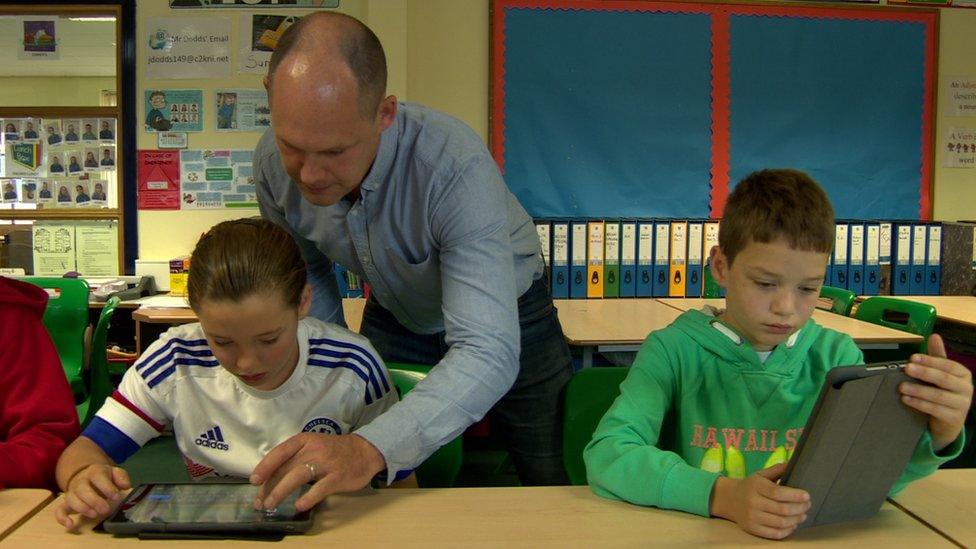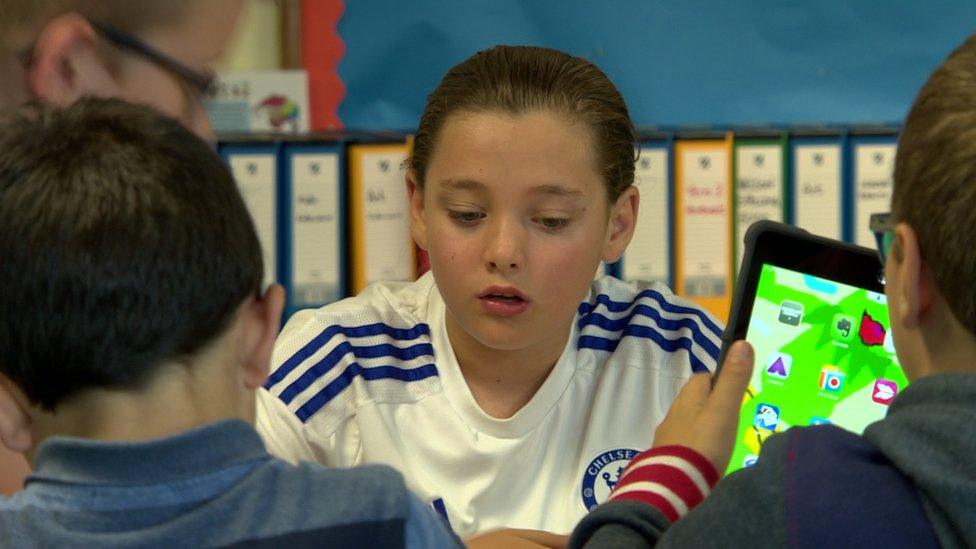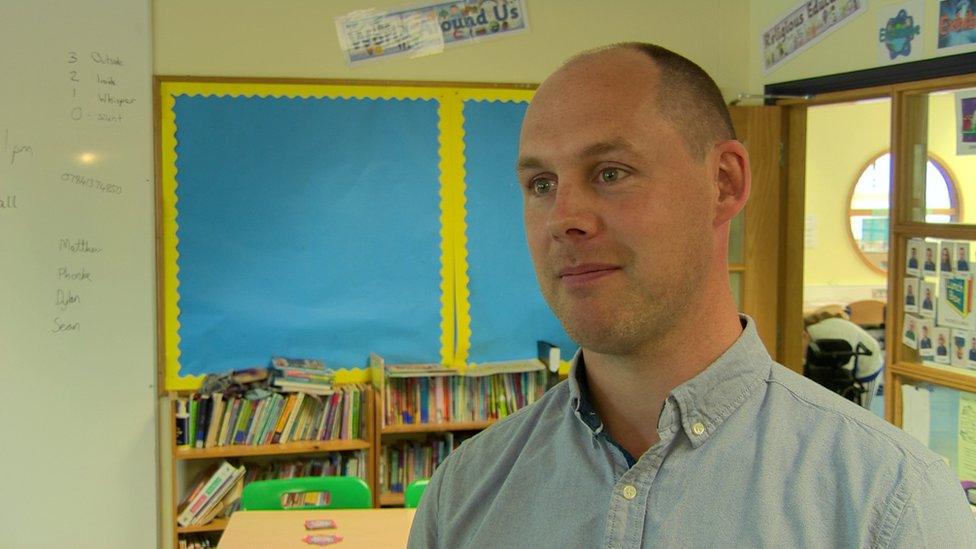Foster children: Specialised summer scheme helps learning through fun
- Published

Foster children Jolene and Matthew receive help with English and maths at the summer scheme
Like thousands of other children, 10-year-old Jolene and Matthew, nine, are at a summer scheme this week.
Theirs, taking place at Victoria Primary School in Newtownards, County Down, is a scheme with a difference.
It is for children in foster care, and they are getting help with English and maths as well as having fun.
It is one of only five in Northern Ireland specifically for fostered children of primary school age, and is run by the Fostering Network.
The scheme helps foster children to realise they are not alone, Kathleen Toner said
The network's director Kathleen Toner said children in foster care often struggle in school.
"Children who come into the care system may have had experiences of trauma or neglect," she said.
"They will have had fractured family relationships, and about a third are disabled.
"They can be in different placements as well, so they could have had several foster carers.

Jolene said she enjoys the summer scheme classes because they are fun
"So they often find it difficult to engage in school because they have lots of other things going on in their heads.
"Our schemes are about supporting the foster carers and the children to improve their educational outcomes."
Some may be the only foster child in their school, so the scheme helps them to realise they are not alone.
"They come here and they see that other children have similar experiences to them and they're not that different," Ms Toner said.

Jeffrey Dodds gives up part of his summer holiday to teach the children on the scheme
There are around 2,000 children living with foster families in Northern Ireland.
The Fostering Network's five summer schemes all cater for small groups of 12 to 15.
Jeffrey Dodds, a primary seven teacher at Victoria Primary School, gives up a week of his summer holiday to teach the children.
He begins planning activities months before the end of the school year.
"Some of the things we have on the programme are a maths tournament, so we look at maths skills," he said.

The children learn through classroom activities and trips to libraries and discovery centres
"We incorporate that into games like dominos."
"We're going to visit the local library and we've been to [the science and discovery centre] W5, so we use all of those activities to enhance the learning the children experience."
Jolene likes football and plays for two local teams, while Matthew likes climbing and playing computer games.
Both agreed that the scheme was better than school.
"It's good because it's fun to do," said Jolene.